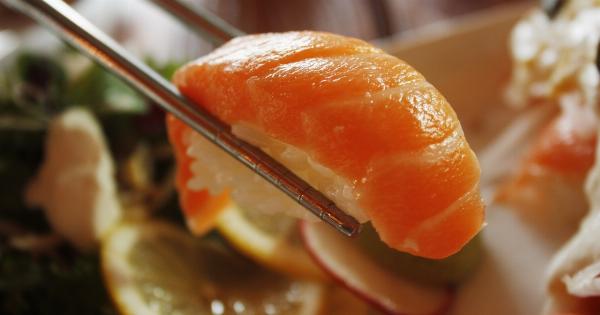Bad breath can be embarrassing and can make socializing or even personal interactions uncomfortable. However, we can all say goodbye to the embarrassment that comes with bad breath by making small changes to our diets.
Certain foods can help prevent bad breath and even improve our oral health. In this article, we will discuss foods that can help fight bad breath, especially from those onions and garlic.
Water
The first food, or rather drink, that can help you fight bad breath is water. Water can help to wash away bacteria and food particles that are stuck between your teeth and gums, leading to bad breath.
In addition, water can help to keep your mouth moist, making it difficult for bad bacteria to grow.
Green Tea
Green tea is another drink that can help to fight bad breath. It contains polyphenols, which can reduce sulfur compounds in the mouth that cause bad breath.
In addition, green tea can help to reduce the number of bacteria that are present in the mouth, leading to fresher breath.
Yogurt
Yogurt is an example of a probiotic food that can help fight bad breath. Probiotics are good bacteria that can help to improve the overall health of your gut and, in turn, your mouth.
When you consume probiotics, it can help to reduce the amount of bad bacteria in your mouth, leading to fresher breath.
Oranges
Oranges are a great source of vitamin C that can help fight off bacteria in the mouth that can cause bad breath. Vitamin C is a powerful antioxidant that can help to keep your gums healthy and reduce inflammation, which also leads to fresher breath.
Celery
Celery is another food that can help to fight bad breath. It contains a lot of water, which can help to wash away bacteria and food particles from your teeth and gums.
In addition, celery can help to stimulate saliva production, which is important for good oral health and reducing bad breath.
Carrots
Carrots are another food that can help to fight bad breath. Like celery, they require a lot of chewing, which can help to stimulate saliva production in the mouth.
In addition, the rough texture of carrots can help to scrub away bacteria and food particles that can cause bad breath.
Parsley
Parsley is a herb that is commonly used to garnish plates in restaurants. However, it can also help to fight bad breath. Chewing on a sprig of parsley after a meal can help to freshen your breath.
It contains chlorophyll, which is known to help neutralize bad breath-causing compounds in the mouth.
Fennel Seeds
Fennel seeds are another herb that can help to fight bad breath. Chewing on fennel seeds after a meal can help to freshen your breath. They contain antimicrobial properties that can help to kill bacteria in the mouth that cause bad breath.
Apples
Apples are a great source of fiber, which can help to scrub away bacteria and food particles from your teeth and gums. In addition, they also contain polyphenols, which can reduce sulfur compounds in the mouth that cause bad breath.
Turmeric
Turmeric is a spice that is commonly used in Indian cuisine. It contains curcumin, which is a compound that has anti-inflammatory and antimicrobial properties.
Adding turmeric to your food can help to reduce inflammation in the mouth and kill off bad bacteria that cause bad breath.
Conclusion
There are many foods that can help to fight bad breath. Incorporating these foods into your diet can help to improve your overall oral health and leave you with fresher breath.
Remember to also practice good oral hygiene habits such as brushing and flossing regularly to maintain optimal oral health.





























